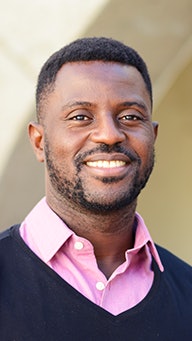 Dr. Sara Warner
Dr. Sara Warner
An initial draft of a majority opinion written by Justice Samuel Alito and circulated within the court was obtained and published by Politico. An article in Politico explained that if the draft becomes final, the ruling would strike down the landmark 1973 Roe v. Wade decision that guaranteed federal constitutional protections of abortion rights and a subsequent 1992 decision, Planned Parenthood v. Casey, which maintained that right in large part.
Dr. Sara Warner, director of LGBT Studies at Cornell University and associate professor of performing and media arts, says the leaked opinion “whether it is enacted or modified will fuel the war already underway in this country against LGBTQ+ citizens, and in particular trans people of color.”
Warner says she is particularly concerned about the trans community of color because of recently passed and proposed laws. “More than 20 anti-trans bills have become law in the past three years, and in the first few months of 2022, over 300 anti-LGBTQ+ bills have been introduced into state legislatures, with more on the horizon,” Warner tells Diverse.
Several colleges and universities issued statements from faculty members denouncing the implications of the draft and expressing concerns about its impact on LGBTQ+ rights.
One of Warner’s colleagues at Cornell, Dr. Katherine Sender, a professor of communication and feminist, gender, and sexuality studies, says in a statement posted on the university’s website in May, “I see a direct link between the possible overturning of Roe v. Wade and the risk of pushback on LGBTQ civil rights. We are already seeing parallel conservatism with Florida’s ‘Don’t Say Gay’ bill. But the Roe v. Wade issue is a little different because it puts in question the right to privacy that also underlies the overturning of anti-sodomy laws, and thus marriage equality.”
Sender adds that she views the leaked opinion as the latest step in a long-term strategy.
“What we are seeing is the conservative right wing of the Republican Party playing the long game of bringing reactionary judges into courts at all levels, now most worryingly the Supreme Court, such that the courts are actually much more conservative — anti women’s rights, anti-LGBTQ rights — than the population at large,” Sender says in the statement.
'Kicks the constitutional legs … '
Columbia Law School issued an advisory from its think tank, the Law, Rights and Religion Project, which includes a statement from Dr. Katherine Franke, the James L. Dohr Professor of Law.
“While the draft notes that the decision does not reach other issues such as contraception, same-sex marriage, and laws criminalizing same-sex sex, Justice Alito’s draft opinion kicks the constitutional legs out from under the decisions recognizing those rights, and it’s hard to see upon what constitutional principles they will rest if this opinion becomes law,” says Franke in a statement issued by Columbia’s Center for Gender and Sexuality Law, where she serves as director. “Should this opinion be officially issued by the Court, it will eliminate not only constitutional protections for abortion, but well-settled legal principles on which basic personal rights have rested for over 60 years.”
 Dr. Godfried Asante
Dr. Godfried Asante
Warner further explains that the leaked SCOTUS opinion declares that only rights that are “deeply rooted in this Nation’s history and tradition” and “implicit in the concept of ordered liberty” are protected, with the five signatories refusing to frame the matter as a right of personal autonomy and of control over one’s own body. “This is what concerns me,” Warner wrote in an email to Diverse. Alito suggests in his Obergefell dissentd that the right to same-sex marriage is not among those rights deeply engrained in American history and tradition. “If this isn’t a telegraphed threat, I don’t know what is,” Warner remarks.
'Steppingstone or slippery slope'
Dr. Godfried Asante, an assistant professor of communication at San Diego State University, researches and publishes on race and LBGTQ+ issues in the U.S. and Ghana. He says he sees similarities between the two countries, particularly around the role of evangelicals in the anti-abortion movement. “Because I study LGBT rights in both the U.S. and in West Africa, I’ve seen what these evangelical groups are looking for, the kind of national identity, the kind of nation that they're looking for,” Asante says. He says measures are being proposed in Ghana to toughen repressive laws that already exist and to ban discussions of LGBTQ+ issues on social media in schools and other public spaces.
Regarding the Dobbs draft, Asante says, “The reasoning is my biggest concern, and whether that reasoning will be the steppingstone or slippery slope toward the disbandment of other rights.” He adds that in the draft bill, “the way that [ Alito] wrote that it should not be applied in other settings — I don’t believe that, and I don’t believe it because of what’s already going on in states such as Idaho, Florida, and Texas. I think it would be extremely naïve to assume that the reasoning being applied in the draft cannot be applied in other settings.”
Asante compares existing and proposed anti-LGBTQ+ Ghanaian laws to those in the U.S. “Looking at what’s happening in Ghana and what’s happening in the U.S., I’m seeing similar tactics,” he says. The effort in Ghana is being used to push for the enactment of even harsher laws that target trans women, just as laws being passed in various U.S. states have marginalized trans women students and athletes, Asante explains.
Bills restricting trans youth, particularly girls, from competing in women’s sports continue to be introduced by state legislatures, even though in most of those states the numbers of trans students seeking to compete are minuscule — for example, two students per year out of 180,000 in Michigan, according to the Detroit Free Press. LGBTQ civil rights group The Human Rights Campaign (HRC) filed a federal civil rights lawsuit in June 2021 challenging Florida’s “Fairness in Women’s Sports Act,” which bans transgender women and girls from taking part in women’s sports. HRC contends the law violates both the Constitution and existing federal anti-discrimination law. HRC also has sued Tennessee for its legislation restricting bathroom use for trans students and challenged the Trump Administration’s attempt to halt protections against discrimination for LGBTQ+ people in the Affordable Care Act.
As they await the Court’s final opinion on Dobbs, given the onslaught of legislative attacks already being waged against LBGTQ+ rights, the scholars are less than optimistic.
“We have regressed to a sphere of political ignorance with opponents claiming that LGBTQ+ people are moral threats, child molesters, groomers, and recruiters,” says Warner. She says that regression is exemplified by Florida Gov. Ron DeSantis’ so-called “Don’t Say Gay” bill “and his bullying of Walt Disney.”
Warner adds, “I’m a Southerner, from Louisiana, and I’m enraged and saddened by this and by the Texas Gov. [Greg] Abbott’s suggestion that parents who provide affirmative heath care for their trans offspring are child abusers. This assault, led largely by white, male, religious ideologs, is intensifying with no end in sight.”















